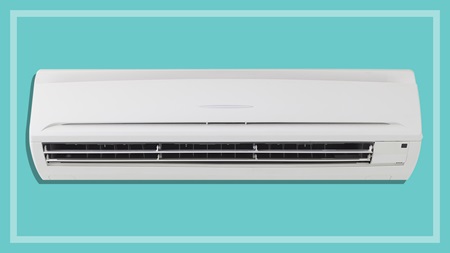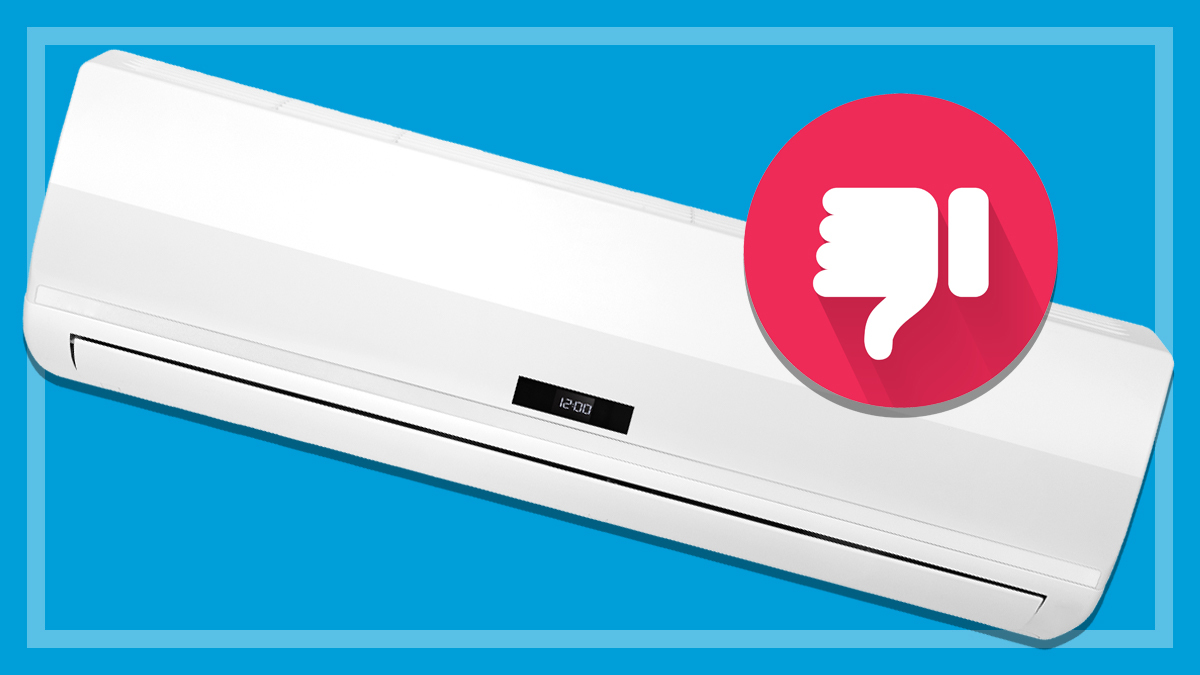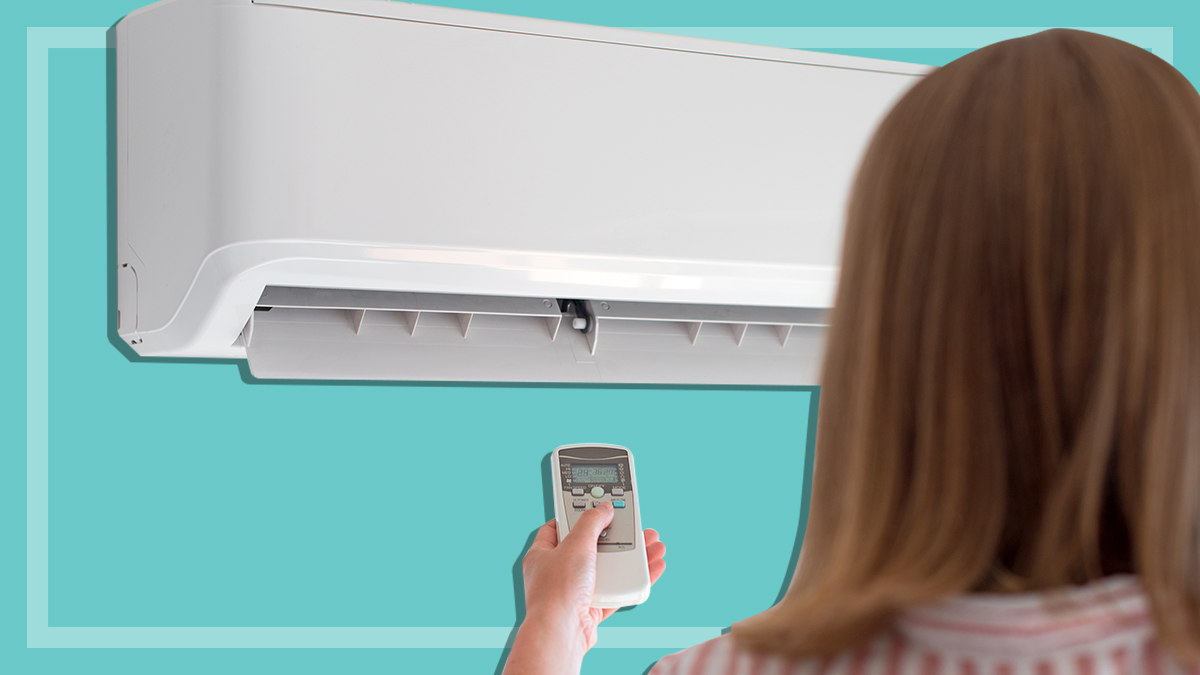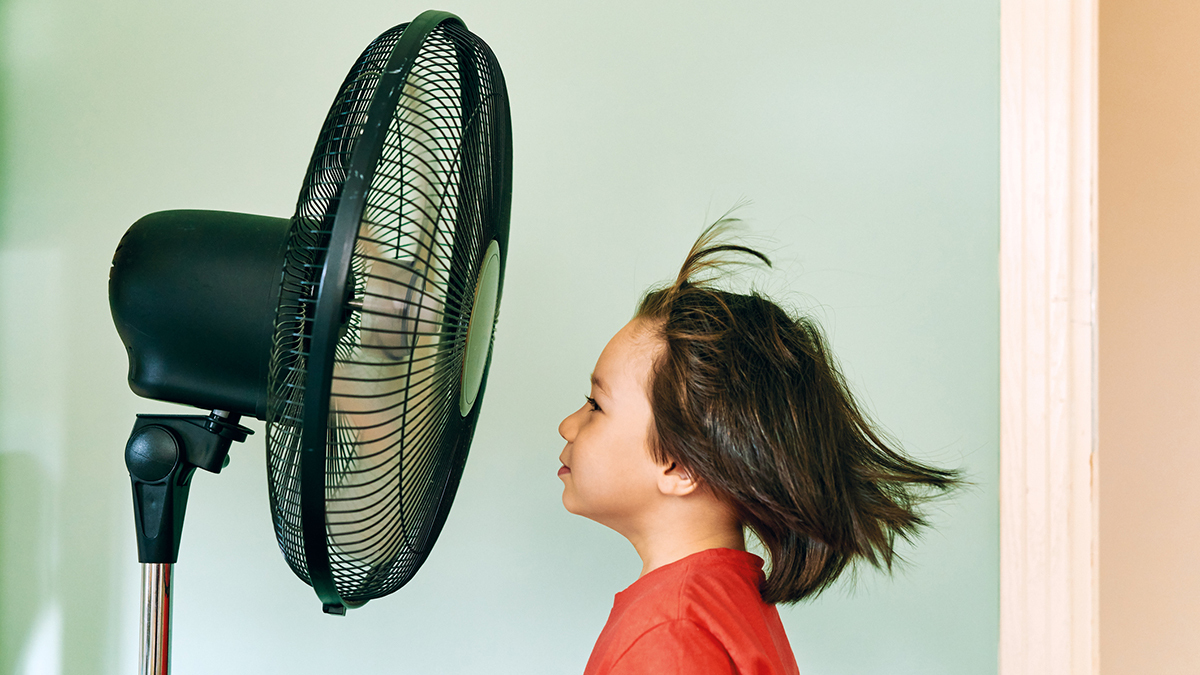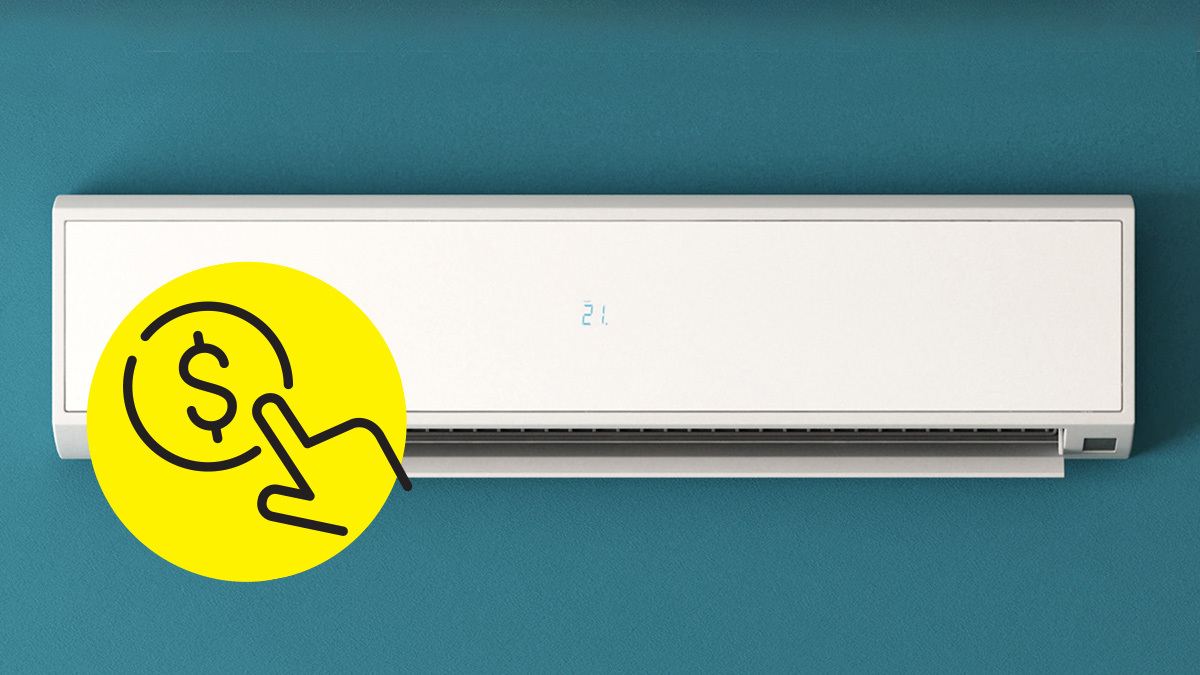Get our independent lab tests, expert reviews and honest advice.
How to fix and maintain your own air conditioner
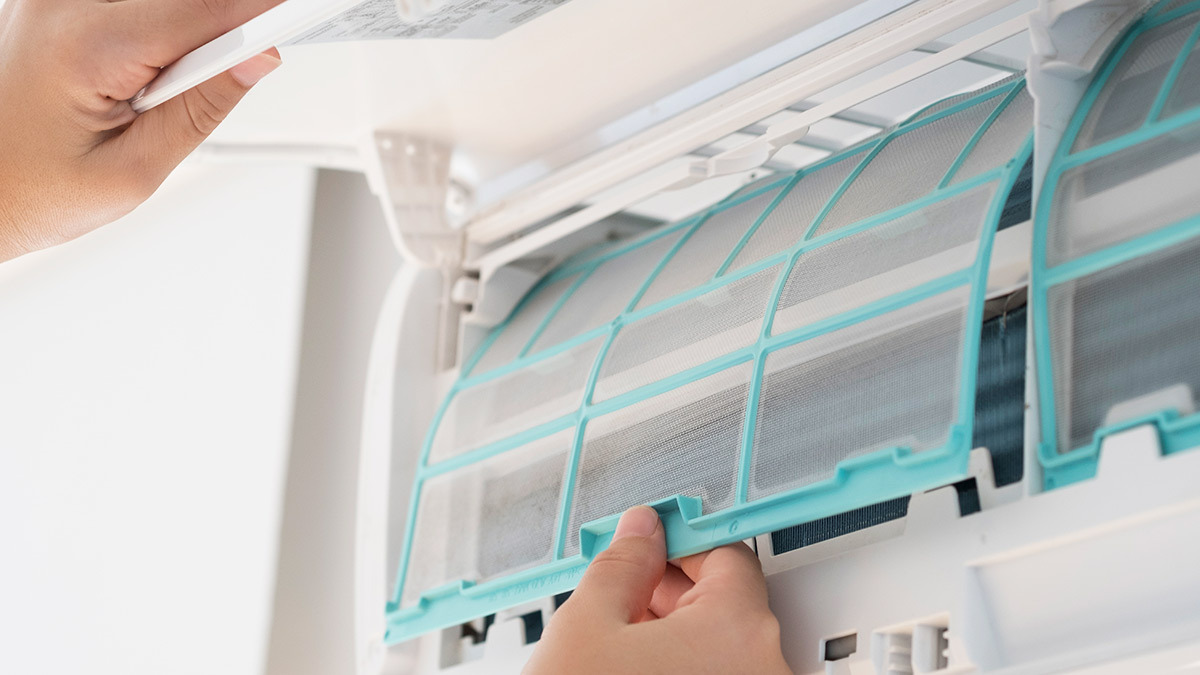
Heat pump air conditioners (also known as refrigerant air conditioners) can become sluggish over time.
On this page:
- Not blowing cold air
- Not adequately cooling a room
- Strange noises or smells
- Leaking water
- Starts, but then stops cooling
- Is faulty air con behind your high energy bill?
- How much does a service cost?
But before you pay a technician for a call-out fee, here’s a guide to some of the common problems you might be able to fix yourself.
Not blowing cold air
Filters
Filters inside air conditioners are supposed to catch dust, but dirty filters will make your air conditioner work harder and be less effective at cooling your home.
Cleaning the dust filters every few weeks is recommended, but aim to do it at least twice a year. It’s usually a simple matter of popping open the plastic cover and removing the filter (or filters) and taking them outside for a good shake.
You can wash them in warm, soapy water if they’re really grimy, but make sure they’re completely dry before you put them back in the unit. Check your manual to see how frequently filters need to be replaced.
Thermostat
If your air conditioner is blowing warm air when you want cool, check the thermostat. If the setting is right and the air conditioner is not cooling properly, the compressor might be damaged.
First, check the thermostat on your controller is set to ‘cool’ (usually indicated by a snowflake symbol). If it is, check the temperature is low enough for the unit to know it’s supposed to blow cool air. Do a quick test by dropping the temperature extra low, say 16°C. If it blows cool air, switch the unit back to an optimum working level, around 22°C.
If your thermostat is set to a reasonable temperature and it’s still not blowing much cold air your compressor might be broken. Compressor and fan controls can wear out over time. An air conditioner won’t work if the compressor’s broken, so for this you will need to call in a technician to service it.
Refrigerant
If your air conditioner is not blowing cool air at all, it may mean low refrigerant levels.
Refrigerants in most air conditioners are greenhouse gases, so if your refrigerant levels need service, maintenance or repair, call a qualified heating, ventilation and air conditioning (HVAC) mechanic or installer. Check that your HVAC specialist is licensed to handle refrigerants by looking them up at Look for the Tick.
Not adequately cooling a room
Your air conditioner needs to be the right size for the space you’re trying to cool, but insulation, location and orientation also have a significant impact.
Only cool the rooms you’re actually using and close doors between cooled and uncooled areas.
If your windows face north or west they’ll be letting a lot of heat into your space, making your air conditioner work harder. Put in some shading, like indoor curtains or blinds and outdoor sails, awnings or deciduous plants, so that less heat enters through your windows in the warmer months.
Air conditioners generally last 6–12 years
Insulating your home is one of the best things you can do to put up a barrier between you and the heat outside. If possible, improve your home’s ceiling, wall and floor insulation (in that order) and plug any draught gaps in door and window frames to help seal your room up like an esky.
If you’re using a split system air conditioner, put the outdoor part on the south side of the house if possible, or in a shaded spot. It will work better in shade than if it’s in direct sunlight.
If you’re shopping for an air conditioner, read our guide to help find the right size for your space.
Strange noises or smells
If your air conditioner starts making a strange noise or a bad smell, it could be because of dirty air filters, an internal part that’s come loose, the fan not working properly or a poorly fitted grille.
If the air conditioner sounds like it’s just working harder than usual, it could just be that the filters are dirty. Check and clean the filters.
If your air conditioner makes a soft whistling sound it means that air is having trouble flowing through. Make sure the filters are fitted properly after cleaning. If the noise persists or is loud, turn the unit off and call a technician.
If your unit is giving off a bad smell there might be dirt, mould or mildew inside that’s circulating through the air it blows out
If the noise is more extreme, like screeching, hissing, banging or grinding, switch off your air conditioner. The sound might be an indication of a more serious problem that needs a technician to fix. If a professional checks your unit and can’t fix the problem, it might be time to replace your air conditioner. Air conditioners generally last 6–12 years.
If your unit is giving off a bad smell there might be dirt, mould or mildew inside that’s circulating through the air it blows out. The first step is to replace the air conditioner’s filters. If the smell continues, the insulation might be damaged and you will need to call a technician.
How to clean your air conditioner
Leaking water
Moisture in the air will naturally condense on the cold parts of your air conditioner, like it does on a cold drink in warm weather. But if water is leaking and pooling, that’s a problem and a safety risk.
This too could be caused by a dirty filter, but could also be due to a number of other problems, including a clogged or disconnected drain line, a pump malfunction, dirty or damaged coils, improper installation or a refrigerant leak.
Turn off your air conditioner at the power point and check the filters for dust or damage.
Water and electricity aren’t a friendly combination and troubleshooting is best left to specialists
You can also check the evaporator coils inside the indoor unit – these can freeze and cause water overflow if they’re dirty.
Turn off the air conditioner and open the front panel to get access to these copper or steel coils. If they’re mildly dirty, clean them with compressed air, a gentle (not wire) brush or warm, soapy water applied with a cloth. If they’re more heavily soiled you should call an HVAC specialist.
In general, although you can try the above two solutions yourself, water and electricity aren’t a friendly combination and troubleshooting is best left to specialists. The best option is to call a licensed technician to diagnose the cause, whether it’s refrigerant leakage, malfunctioning parts or it’s simply time to replace your air conditioner.
Starts, but then stops cooling
Short cycling is when an air conditioner gets stuck in the start-up cycle of powering up the compressor, and turns on and off rapidly without ever reaching the thermostat’s temperature.
There are a few reasons this happens, including:
- a clogged air filter
- the air conditioner is too big for the space it needs to cool
- air leaks
- thermostat malfunction
- leaking refrigerant
- frozen evaporator coils in the indoor unit.
Of all those reasons, there are two you can fix yourself – cleaning the filters, and cleaning the evaporator coils in the indoor unit as described earlier.
Is faulty air con behind your high energy bill?
If your power bill has spiked and you’re not sure why, do an energy audit to try to find the culprit. An air conditioner that’s not working properly will increase your running costs because it has to work extra hard to keep your room cool.
First, clean the air vents and clean or replace the filters.
Then, consider set-up problems that might be affecting your air conditioner’s performance. Is the external unit in full sun? Move it to a shaded spot. Are there draught gaps in your window and door frames that are letting in more heat than usual? Seal these to create an esky-like environment in your home. Here are some other ways to make your air conditioner more energy-efficient.
If the surge in running costs happens at the same time as any other problem, and if it is more than ten years old, it’s likely that it’s time to replace it.
How much does a service cost?
The cost of servicing your air conditioner will depend on what’s wrong with it.
If all the technician needs to do is show you how to use your remote properly (snowflake symbol for cold, sun symbol for warm), or clean some filters, you might be looking at a simple call out fee plus time on site of around $150.
You could expect to pay a similar price if you call out a technician for an annual service on your air conditioner, assuming there are no other problems.
Your best bet to minimise costs is to clean the filters and carry out any other maintenance as instructed in your air conditioner manual
If the servicing agent has to travel a long way, they’ll most likely build in a fee to cover that, and there may be extra costs associated with parts and labour.
Your best bet to minimise costs is to clean the filters and carry out any other maintenance as instructed in your air conditioner manual – then call for a service if it doesn’t solve the issue.

